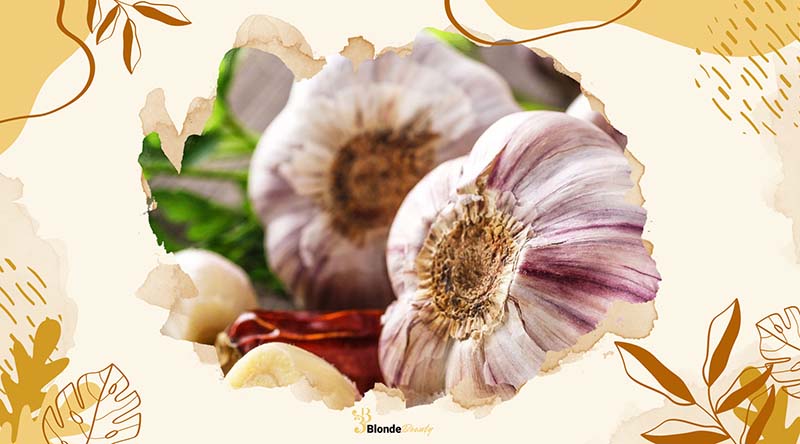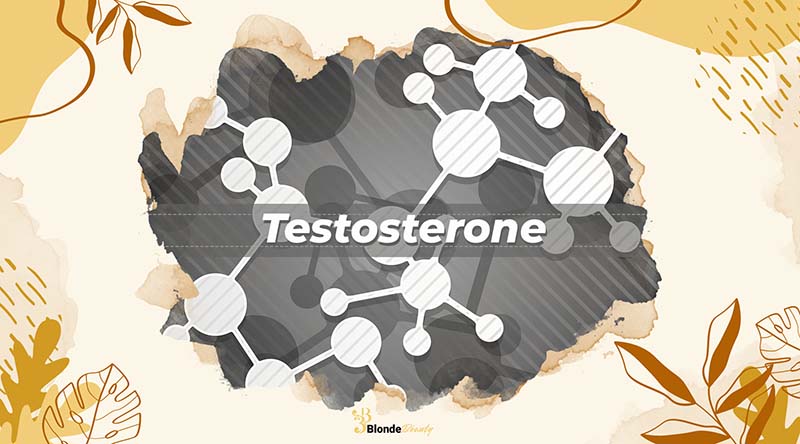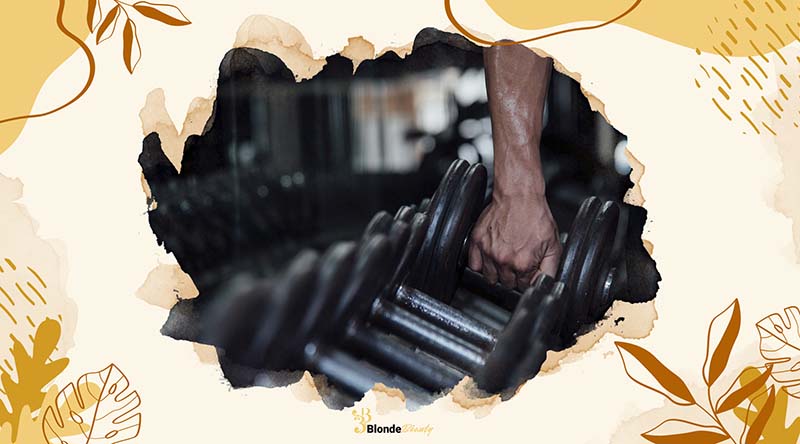Knowing the importance of eating well is crucial for staying healthy. Changing what you eat can help with health issues, make you feel better mentally, and improve your overall quality of life. When you understand how different foods can benefit you, you’re in control of your health just by eating right.
Among the myriad of foods that are beneficial for health, garlic stands out not only for its taste but also for its numerous health benefits. Though it might leave your breath a bit strong, the question ‘Is Garlic Good for Testosterone?‘ has been gaining traction.
This attention stems from garlic’s potential role in boosting testosterone levels. Let’s take a closer look to see if there’s any truth to these claims and how garlic might impact testosterone levels.
You should also read the following articles:
- Does Creatine Cause Erectile Dysfunction? Unraveling the Facts.
- Does Green Tea Boost Testosterone? The Benefits of Green Tea.
- Is Coffee Bad for Testosterone? Hormonal Effects.
Is Garlic Good for Testosterone?
Garlic is indeed packed with bioactive compounds like allicin, alliin, ajoene, S-allyl-cysteine, diallyl sulfide, and other allyl derivatives, which are believed to play a role in boosting testosterone production. A study conducted in 2001 found that garlic supplementation notably increased testicular testosterone levels in male rats.
Additionally, the sulfur compound diallyl disulfide found in garlic was shown to raise the levels of luteinizing hormone (LH) in the body, which is linked to testosterone production. Another research from 2015 demonstrated that consuming garlic cloves led to the regeneration of Leydig cells in the testicles, further supporting its potential to positively impact testosterone levels. A more recent study in 2021 confirmed that higher levels of S-allyl Cysteine, a bioactive compound in garlic, were associated with increased testosterone levels.
Moreover, garlic’s antioxidative properties are beneficial for the health of the male reproductive system, including testicular function. For optimal benefits, it’s recommended to consume garlic in its raw form. However, garlic supplements can also provide similar effects on the body. When combined with regular exercise and a balanced diet, garlic can be a significant aid in combating testosterone deficiency.

The Connection Between Garlic and Testosterone
Numerous studies have established a direct correlation between garlic consumption and testosterone levels, highlighting garlic’s potential to significantly elevate testosterone levels. This impact is attributed to the potent constituents found in garlic bulbs. Beyond its rich array of vitamins and minerals, including potassium, zinc, calcium, magnesium, and B-complex vitamins, garlic is teeming with bioactive compounds such as allicin, alliin, ajoene, S-allyl-cysteine, diallyl sulfide, and other allyl derivatives. These compounds collaborate to address the underlying factors contributing to testosterone deficiency, thereby enhancing and preserving testosterone levels.
The most noteworthy research in this realm is a comprehensive clinical intervention conducted in 2001, comprising two phases. In the initial phase, which focused on animal subjects, the impact of garlic on testicular testosterone levels was evaluated. Results revealed a significant increase in testicular testosterone levels in male rats following nearly a month of garlic supplementation.
The second phase of the study investigated the effects of garlic’s sulfur compound, diallyl disulfide. It was observed that administration of diallyl disulfide notably elevated the levels of luteinizing hormone (LH) in the pituitary gland, a crucial regulator of testosterone levels. Furthermore, the research concluded that garlic stimulates protein biosynthesis by enhancing testosterone levels.
Further bolstering these findings, a study from 2015 indicated that consumption of garlic cloves could promote Leydig cell regeneration in the testicles, fostering healthy testosterone production. Additionally, recent research from 2021 focusing on S-allyl cysteine, a bioactive compound present in garlic, confirmed that increased levels of S-allyl cysteine are associated with a significant rise in testosterone levels.

6 Other Health Benefits of Consuming Garlic
Garlic Helps Eliminate Toxins
Our bodies accumulate various toxins from sources like food, air pollution, and water. Over time, these toxins can lead to serious health issues, including hormonal imbalances like testosterone disruption.
Garlic aids in detoxification by stimulating the production of glutathione, an antioxidant generated by its sulfur-rich components. This process activates liver enzymes, facilitating the elimination of toxins from the body.
Garlic Helps Regulate Blood Pressure
High blood pressure is a prevalent health concern linked to diet and lifestyle factors. Garlic consumption has been shown to significantly lower blood pressure and cholesterol levels when incorporated into regular dietary habits.
This reduction in blood pressure supports healthy testosterone production. Garlic can be consumed in various forms, including supplements, for those sensitive to its odor.
Garlic Improves Muscle Function and Endurance
Garlic enhances the effects of amino acid-rich foods, optimizing muscle growth and function.
Improved muscle functioning leads to better athletic performance and efficiency during high-intensity workouts, which can indirectly contribute to boosting testosterone levels through exercise.

Garlic Helps Improve the Immune System
Garlic strengthens the immune system by exerting anti-inflammatory and immunomodulatory effects.
Regular consumption of garlic enhances immune functioning, aiding the body in combating various ailments, including cardiovascular issues, microbial infections, and even malignant tumors.
Garlic Causes a Reduction in Cholesterol Levels
Garlic helps maintain healthy cholesterol levels by reducing LDL (low-density lipoprotein) cholesterol, commonly known as “bad” cholesterol.
By lowering serum triglyceride levels without affecting HDL (high-density lipoprotein) cholesterol, garlic promotes cardiovascular health. Studies have shown that even small amounts of garlic can significantly reduce cholesterol levels.
Garlic Helps with Antioxidants and Antibiotics
Garlic contains allyl derivatives such as allyl cysteine and allyl disulfide, powerful antioxidants that combat free radicals and oxidative damage at the cellular level.
This antioxidant activity minimizes physical fatigue and promotes faster post-workout muscle recovery, indirectly supporting testosterone enhancement through improved physical endurance.
Additionally, garlic’s antibiotic properties, attributed to compounds like allicin, help protect against illness-causing microbes and enhance the body’s ability to combat infections, aiding in faster recovery when consumed alongside prescribed medications for bacterial, viral, or fungal infections.
How to Eat Garlic to Boost Testosterone Effectively
To harness the testosterone-boosting benefits of garlic, incorporating it into your daily diet is key. Consuming 2–3 cloves of garlic per day is sufficient to provide the necessary nutrients without overwhelming your taste buds. It’s best to consume garlic raw to retain all its valuable components, as cooking processes may alter its chemical composition and diminish its effectiveness.
If you’re not fond of the taste of raw garlic, you can opt for garlic supplementation. In this case, it’s important to follow the manufacturer’s recommendations regarding dosage and administration, as each product may have its specific guidelines. When choosing a garlic supplement, ensure that it is manufactured by an FDA and GMP-certified facility, offered by a reputable brand, and has been tested by a third-party laboratory for quality assurance. This ensures you’re getting a reliable product that can effectively support your testosterone levels.
Conclusion
Garlic provides numerous health benefits, particularly in boosting testosterone when paired with exercise and a balanced diet. Consuming it raw enhances its effectiveness, including improving circulation and libido.
So, is garlic good for testosterone? The answer is yes, it can potentially contribute to higher levels. For extra support, natural testosterone boosters, some containing garlic extract, can help increase testosterone by blocking its conversion or aiding its production.
However, consulting a healthcare professional before adding supplements to your routine is recommended.
For more insightful articles on health and wellness, be sure to explore additional blogs from Blonde Beauty.

Laureate Professor Clare Collins
Professor Clare Collins is a leading expert in nutrition and dietetics at the School of Health Sciences, part of the College of Health, Medicine and Wellbeing. Her work is changing the way we think about food and health. She grew up as one of nine children and was the first in her family to finish high school and go to college. This background gave her a strong work ethic and a deep appreciation for seizing opportunities.
As the Director of the Hunter Medical Research Institute’s Food and Nutrition Program and a recipient of three NHMRC Research Fellowships, Professor Collins is making a big difference in public health. She focuses on helping people who are often overlooked, using new technologies like apps and online programs to improve their nutrition and reduce the risk of chronic diseases.
Professor Collins is well-respected and has been recognized as a Fellow in four major health and science organizations. She leads a diverse team of experts, including dietitians, computer scientists, and engineers, working together on global health projects.
Her achievements are impressive. She has received over $29 million in research funding, published more than 450 papers, and helped 35 PhD and Master’s students complete their degrees. She’s also active in sharing her knowledge with the public. She has developed tools like the Australian Eating Survey and the Healthy Eating Quiz, and she often appears in the media to talk about nutrition.
PUBLISHED ARTICLES
- Collins, C. (2019). “The Effect of a Pilot Dietary Intervention on Pain Outcomes in Patients Attending a Tertiary Pain Service.”
- Collins, C. (2022). “Variation in cardiovascular disease risk factors among older adults.”
- Collins, C. (2022). “Evaluation of an online intervention for improving stroke survivors’ health-related quality of life: A randomised controlled trial.”
These articles show Professor Collins’s commitment to understanding how better nutrition can improve health. Her work is important for researchers, doctors, and anyone interested in healthy living.
